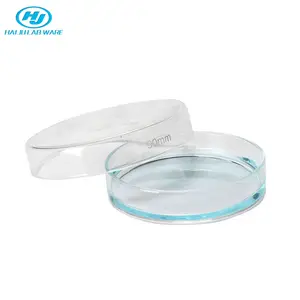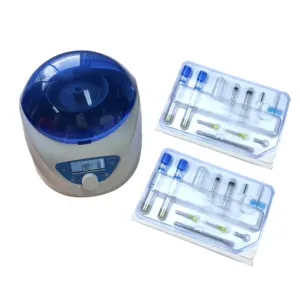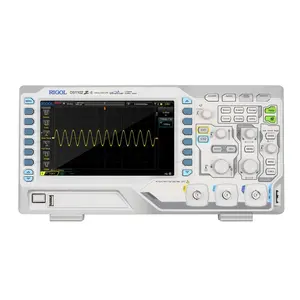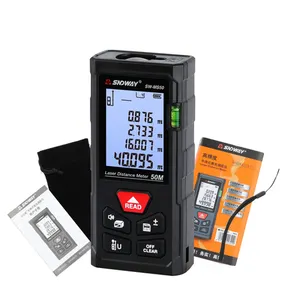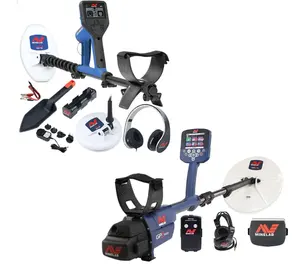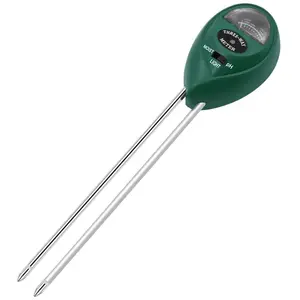Popular in your industry








































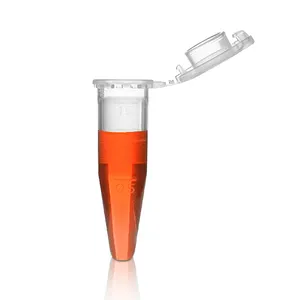























Related Searches:







































































































































About centrifuge tubes
What are Centrifuge Tubes
Centrifuge tubes are an essential laboratory tool used extensively in clinical, research, and academic settings. They are designed to hold samples that need to be separated by centrifugation - a process that involves spinning a liquid at high speed to separate its components based on density. These slender vessels come in various sizes and materials, each tailored for specific applications and types of centrifuges.
Scientists and lab technicians rely on centrifuge tubes to perform tasks ranging from simple sedimentation of cells and viruses to the isolation of macromolecules such as DNA, RNA, and proteins. The tubes are crafted to withstand the intense forces generated during the spinning process, ensuring that they maintain their integrity without affecting the sample quality.
The working principle of these tubes is closely linked to the centrifugal force generated by the centrifuge machine. When a tube containing a mixture is spun at high speed, the denser components move outward towards the bottom of the tube, while less dense components remain closer to the top. This results in layers or gradients that can be easily separated or extracted for further analysis. Centrifuge tubes themselves do not separate components; rather, they provide a safe and reliable container for the process to take place.
Types of Centrifuge Tubes
Centrifuge tubes come in a variety of types, each suited for specific laboratory needs:
Conical Tubes: These are perhaps the most common type of centrifuge tube, easily identified by their tapered bottoms. They are particularly useful for precipitating substances and collecting pellets. The conical shape allows for easier retrieval of samples post-centrifugation.
Round Bottom Tubes: As implied by their name, these tubes have a rounded bottom and are typically used when sample retrieval is not an issue. They can be advantageous for certain types of liquid handling and mixing operations.
Microcentrifuge Tubes: These small tubes are designed for use with microcentrifuges and are ideal for processing minute sample volumes. They usually range from 0.2ml to 2ml in capacity and often come with snap or screw caps.
PCR Strip Tubes: Tailored for polymerase chain reaction (PCR) applications, these tubes come in strips allowing multiple samples to be processed simultaneously. They're designed to fit into thermal cyclers for high-throughput DNA amplification.
Falcon Tubes: A brand name that has become synonymous with a style of larger conical centrifuge tubes, falcon tubes generally have capacities ranging from 15ml to 50ml and are used for larger scale centrifugation tasks.
How to choose Centrifuge Tubes
Choosing the right centrifuge tubes for your business involves understanding both the types available and how they align with your specific applications. Considerations should include material compatibility with your samples, volume capacity requirements, and the type of centrifugation they will be subjected to.
Material: Selecting a material that is compatible with your samples is crucial to avoid any chemical reactions or sample contamination. Common materials include polypropylene, which offers chemical resistance and durability; polystyrene, favored for its clarity; and glass, which is chosen for its resistance to high-speed centrifugation and inert properties.
Capacity: Depending on the volume of samples you need to process, you'll need to choose tubes that can accommodate your needs – from microcentrifuge tubes holding mere microliters to larger falcon-style tubes holding tens of milliliters.
Cap Structure: The cap structure is important for preventing leaks during centrifugation. Screw caps provide a secure seal but may require more time to open and close; while snap caps offer convenience but might not be suitable for high-speed applications due to the risk of opening.
Graduation: Graduated markings on the side of tubes can facilitate precise measurement of sample volumes; ensure that you select tubes with clear, durable markings if this is a requirement for your processes.
Best Centrifuge Tubes on Alibaba.com
For businesses seeking reliable and versatile centrifuge tubes suitable for a variety of laboratory applications, Alibaba.com stands out as a premier marketplace. With an expansive selection ranging from robust polypropylene models to precision borosilicate glass options, Alibaba.com caters to diverse needs within the scientific community. The platform's user-driven content aids in filtering search results based on specific criteria such as material, color, application, or customization support – ensuring that you find products tailored to your requirements.
Alibaba.com's commitment to connecting buyers with trusted suppliers globally makes it easy for businesses of all sizes to source their lab supplies efficiently. The added assurance provided by services like Trade Assurance means that your payments are protected until you confirm delivery satisfaction. With Alibaba.com's vast network covering over 190 countries and areas, finding the right centrifuge tubes – whether standard models or customized designs – becomes an uncomplicated process backed by reliable customer support.
By choosing Alibaba.com for your laboratory supply needs, you're not just purchasing products; you're gaining access to a world-class marketplace that facilitates secure transactions and fosters international trade partnerships that could benefit your business long-term.
Common FAQs for Centrifuge Tubes
What are centrifuge tubes used for in a laboratory setting?
Centrifuge tubes are used to separate components of a mixture based on density by spinning the sample at high speeds. They are commonly utilized in biological, chemical, and clinical laboratories for tasks like isolating cells, viruses, or macromolecules such as DNA and proteins.
How do I choose the right material for centrifuge tubes?
Select a material that is chemically compatible with your samples to avoid reactions or contamination. Polypropylene is resistant to chemicals and suitable for high-speed centrifugation, polystyrene is clear for visibility of contents, and glass is inert and stable under high-speed conditions.
What types of centrifuge tubes are available?
Available types include conical tubes for sedimentation, round bottom tubes for mixing, microcentrifuge tubes for small volumes, PCR strip tubes for DNA amplification, and falcon tubes for larger scale centrifugation tasks.
How do tube capacities affect my choice in centrifuge tubes?
Tube capacity should align with the volume of the samples you are processing. Microcentrifuge tubes handle microliter volumes whereas falcon tubes can accommodate larger samples up to 50ml.
Why is the cap structure important when selecting centrifuge tubes?
The cap structure ensures the tube remains closed during centrifugation. Screw caps provide a secure seal suitable for high-speed applications, while snap caps offer convenience for lower speed applications.
Should I opt for graduated centrifuge tubes?
If precise measurement of sample volumes is necessary for your processes, select tubes with clear and durable graduation markings.
Are there any specific considerations for centrifuge tubes in high-speed applications?
For high-speed applications, ensure that the tube material can withstand the generated forces without breaking or deforming. Additionally, screw caps are preferable over snap caps to prevent leaks or tube opening during centrifugation.
What customization options are available for centrifuge tubes?
Customization options may include specific colors, printed graduations, and custom packaging. Some suppliers may also offer original design manufacturing (ODM) services to create bespoke products tailored to your needs.
Is it possible to sterilize centrifuge tubes?
Yes, many centrifuge tubes are autoclavable and can be sterilized. Check the manufacturer's specifications to ensure that the material of the tube you select can withstand the sterilization process.
Can I reuse plastic centrifuge tubes?
Some plastic centrifuge tubes are disposable and intended for single use to avoid cross-contamination. Others may be reused if they are cleaned and sterilized properly between uses.
What does 'conical' mean in the context of centrifuge tubes?
Conical refers to the shape of the tube's bottom. Conical bottom tubes taper to a point at one end, which helps in concentrating sedimented materials during centrifugation and facilitates easier extraction of substances after separation.
How does color affect my choice in centrifuge tubes?
Color may be used to organize and differentiate samples or to protect light-sensitive contents. For example, amber-colored tubes can help protect photosensitive samples from light damage during processing and storage.
How do I ensure the quality of centrifuge tubes?
Quality can be ensured by sourcing from reputable suppliers who provide detailed product specifications and by checking if the products meet relevant standards or classifications such as Class I or Class II instrument classification.
